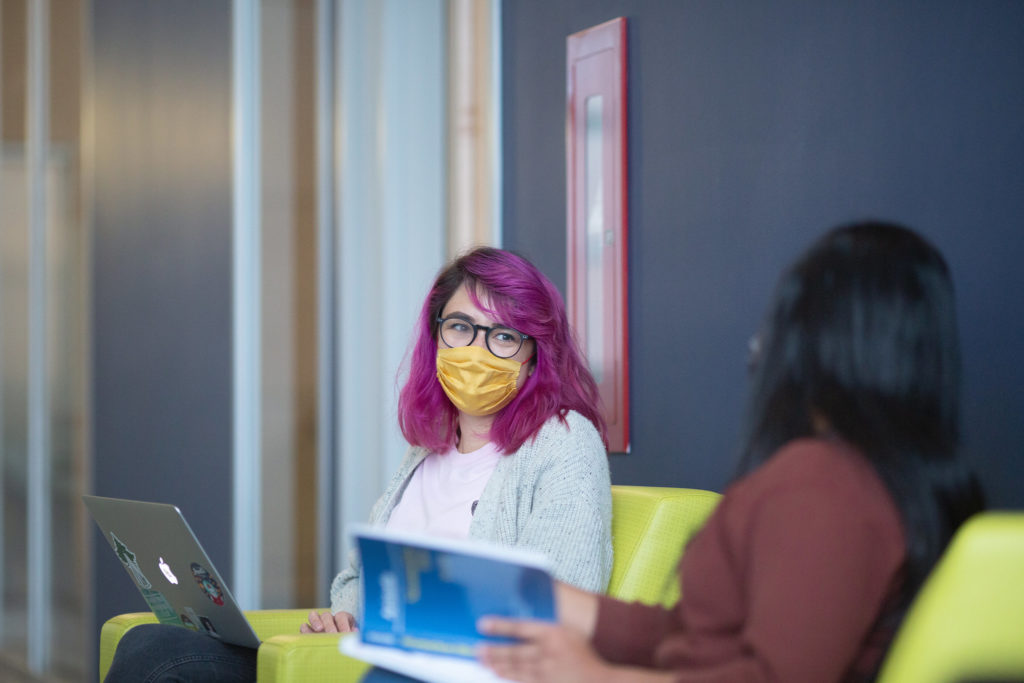
Postsecondary students in British Columbia will have access to as many as 3,000 new co-op and work integrated learning (WIL) opportunities in 2021-22, through a $5.5-million investment from BC’s Ministry of Advanced Education and Skills Training to expand co-op and WIL programs. With a focus on bolstering placements affected by COVID-19, 46 projects across BC’s 25 public postsecondary institutions are being supported, including 11 projects at UBC.
“The COVID-19 pandemic disproportionately impacted youth employment prospects, including reducing the number of co-op and work integrated learning placements available to students. We are investing in these opportunities to help students access the hands-on experiences they need to launch their careers,” said Anne Kang, Minister of Advanced Education and Skills Training. “Helping employers throughout the province offer co-op and work-integrated learning opportunities is good news for business and great news for students.”
Supported by this funding, UBC will have the opportunity to create and expand the following initiatives in support of students:
- Building on work under way to support employers in Interior and northern communities to hire students for 130 WIL placements, with a target to recruit 250 new employers to participate in WIL programs, and to create 20% of new WIL placements in rural and Indigenous communities (a partnership between UBC Okanagan, University of Northern BC, Thompson Rivers University)
- Creating 100 new community field experience placements in rural and remote areas for students completing the UBC Teacher Education Program, to recover from impacts of COVID-19, and to address the continual talent drain of teachers outside urban areas.
- Improving practicum success rate of students in UBC’s Indigenous Teacher Education Program through professional development resources, practicum preparation curriculum, and a reciprocal mentoring network, with a target of 82 new practicum placements and community field experience placements.
- Developing workshops through the UBC Centre for Community Engaged Learning that will help students acquire skills and knowledge to prepare them for 150 to 200 service-learning placements with community-based organizations in 2021-22.
- Building a non-STEM stream for the Canada-Japan Co-op program – a consortium led by UBC that includes five B.C. public colleges and universities – that allows Canadian students to gain technical expertise from co-op placements with Japanese employers, with a target of 25-30 work terms abroad in summer 2022.
- Creating 100 WIL opportunities for UBC Arts students, including with small and medium businesses and non-profit organizations.
- Expanding existing program that creates WIL placements by matching UBC students with partner organizations to work on applied research projects that advance sustainability in the region.
- Establishing a new co-op program related to the wine industry, working with industry partners and the UBC Wine Research Centre, with an initial target of 20-30 students placed in 2022 summer work term, growing to 60-80 annual co-op placements.
- Creating WIL placements with non-profit organizations in the Okanagan region to carry out projects related to specific post-pandemic needs, such as harm reduction and food security.
- Hiring two coordinators, one at UBC’s Vancouver campus and one at UBC’s Okanagan campus, to support Indigenous students in the arts, engineering and interdisciplinary co-op programs.
- Hiring an employment, diversity, and inclusion (EDI) coordinator to increase overall intake of arts students into the program, and to provide resources and better supports for students from EDI backgrounds in securing work terms.
“This funding gives students remarkable opportunities to learn through co-op education connected to communities, organizations and sectors throughout BC,” said Dr. Roger Sugden, Dean, Faculty of Management at UBC Okanagan. “By addressing the barriers to engagement for small- and medium-sized organizations, piloting new programming that crosses disciplinary boundaries, and supporting a sector- specific co-op specialization, the funding helps us to create innovative student learning opportunities that dovetail with the changing needs and developments of regionally-based organizations.”
“The range and scope of supported projects across UBC in this funding announcement is truly impressive, and will significantly expand the opportunities for our students to undertake and be successful in a variety of WIL and Co-op programs as we emerge from COVID restrictions,” said Dr. Simon Bates, Associate Provost, Teaching and Learning at UBC Vancouver. “A number of the projects will build capacity in priority areas for the university, including support for Indigenous students accessing co-op programs and WIL placements that advance sustainability in the region in collaboration with partner organizations.”
Through Strategy 13: Practical Learning, UBC is committed to working with external partners and alumni to increase experiential learning for our students – ‘learning by doing’ across academic programs, and to enhance career services.
Learn more about the Ministry’s co-op and WIL funding across the province.